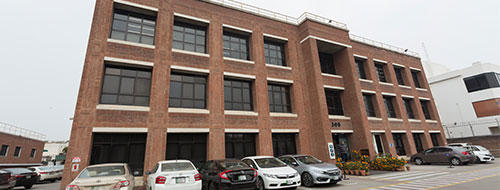Energy Conserving Proficiency
 Our energy consumption has been reduced by 8% per tonne of product since 2012. Energy consumption per tonne of product improved by 3% in 2014 compared to the year 2013.
Our energy consumption has been reduced by 8% per tonne of product since 2012. Energy consumption per tonne of product improved by 3% in 2014 compared to the year 2013.
Water Operational Efficiency
Between 2009 and 2013, total water consumption per tonne of product was reduced and water use efficiency improved by 22%.Our water consumption per tonne of product was further reduced by 4% in 2014 compared to the year 2013. Nestlé Pakistan is aiming at utilizing the treated water by having pronounced water treatment systems and recycling.
Solar and Bio-Gas Energy
Bio-Gas
Identifying the potential and use of alternate sources of energy has become an important need of the commercial and industrial sector. Shortfall of electrical power has created an urgent need to use alternate energy resources like solar and Bio-Gas energy. Nestlé Pakistan has always been taking the lead from the front. After a pilot project for Bio-Gas plant of capacity 200 m3 at Sukheki Farm, Nestlé Pakistan installed another Bio-Gas plant with a capacity of 400 m3 at Sarsabz Farm in 2014. Using four tonnes of cow’s dung, this plant produces an average of 158 m3 gas per day from its four digesters. Most of the Bio-Gas produced is used in power generation where it saves 50% of diesel fuel (60 Litre/Diesel per day) equivalent to reduction of 58,000 kg CO2. Green energy has therefore resulted in reduced carbon footprint.
Solar Energy
The success story of the pilot project encouraged the Company to install two more solar energy projects for its 1,000-litre chiller in the Collection Center at Pull Mangni sub-center and the Dallan area in 2013. The economical and reliable operation of the solar energy system would define how to go for further investment in the coming years. Nestlé Pakistan installed 8 solar energy systems at its Milk Collection centers in 2014 with foreseeable savings of 37,000 KWh per annum and foresees hopes to install 15 to 20 solar energy units of 5-6 KW each, thus extending the solar energy installation to 100KW in 2015. The continuing effort of Nestlé Pakistan in solar energy would set an example in the dairy industry to make use of a renewable energy solution for sustainable business.
 Packaging Achievements
Packaging Achievements
Being aware of the environmental impact and in order to reduce the waste at the source, Nestlé continues to work on reducing and improving its packaging materials. This not only helps in the reduction of our environmental footprint but also helps to improve cost-effectiveness in product pricing, resulting in benefits for the consumers.
Paper and Board:
22 tonnes of paper and board was saved by the optimization of corrugated cases. It was achieved through re-designing the cases for dimensions and material combination without any compromise on the functionality of packaging or the quality of product.
Plastic Laminates:
As much as 231 tonnes of plastics, mainly polyethylene, was saved by optimizing the structure of laminates for milk powders and cereals. The biggest initiative in this regard was the optimization of the sealing layer of the laminates. Many trials and studies were conducted to ensure that this optimization should not have any negative impact on the final quality of our products.
Green Supply Chain
We are delivering more volume with less kilometers travelled and have taken the following steps to ensure environment friendly operations throughout Pakistan.
• Optimizing vehicle capacity
• Utilization by increasing dispatch of North zone through cross dock model
• Induction of new heavy capacity vehicles (50ft, DD Eco liners)
• By introducing HUB model in South, having positive impact on vehicles utilization and less diesel consumption
• By increasing road safety/ vehicle management awareness in Pakistani drivers through NH&MP training sessions.
• Highest ever density: 16 Litre of milk collected / KM of vehicle travelled

